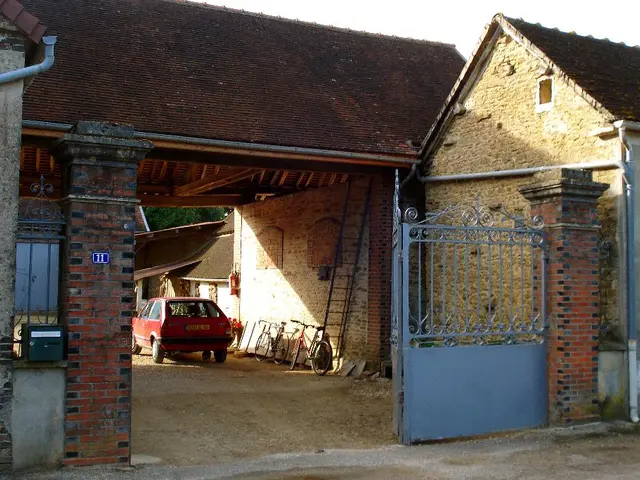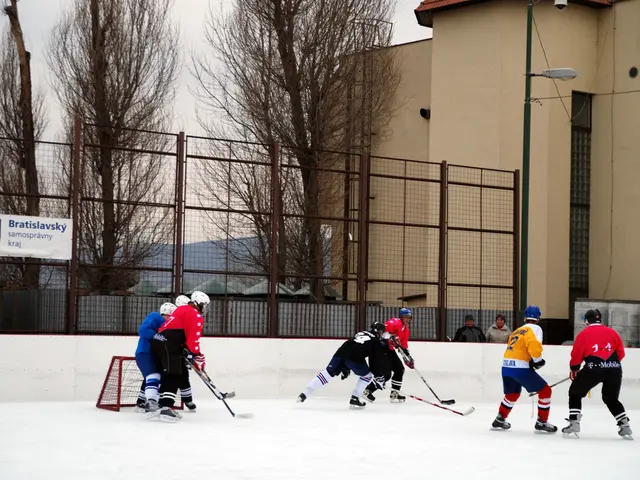Breaking: Intense Clash Grips Kashmir as India Strikes Deep into Pakistan
- *
Intense Escalation in Kashmir Clash: India Attacks Sites Within Pakistan - Intense intensification of Kashmir dispute: India launches attacks on locations within Pakistan
The latest chapter in the prolonged conflict between India and Pakistan unfolded yesterday, as Indian forces launched attacks on at least six locations within Pakistan. Reports from Islamabad suggest that the cities of Bahawalpur and Muridke in Punjab, the most populous region of Pakistan, also fell victim to these aggressive actions. The border region of Kashmir was the epicenter of the armed clashes between the two nations.
According to Pakistani reports, the Indian attacks claimed the lives of 26 individuals, with 46 others injured, including four children. In retaliation, Pakistani artillery fire in the Indian-controlled part of Kashmir left at least eight people dead and 29 others injured in Poonch.
The Indian Army declared that they had effectively destroyed "nine terror camps" in Pakistan, asserting that these sites had been utilized to strategize and execute terror attacks against India. The operation has been characterized as "surgical, accurate, and not escalatory," with no Pakistani military infrastructure targeted. In a triumphant announcement, the Indian Army asserted, "Justice has been served."
Meanwhile, Pakistani Prime Minister Shehbaz Sharif revealed that Pakistan was already mobilizing a response to the Indian strikes. The Pakistani Ministry of Foreign Affairs labelled India's actions as "reckless," stating that the escalation had driven "two nuclear-armed nations to the precipice of a major conflict."
In a bold statement, the Pakistani Army claimed to have shot down five Indian fighter jets over Indian airspace. Among the downed jets, three were Rafale aircraft, one MiG-29, and one SU aircraft, according to a Pakistani military spokesperson. Moreover, the Pakistani army reported shooting down an Indian combat drone.
Islamabad also reported Indian shelling of a hydroelectric power plant in the Pakistani part of Kashmir. "India has targeted the Neelum Jhelum hydroelectric project," a Pakistani military spokesman said, adding that damage had been sustained to a portion of the dam.
Air traffic in the region has been affected as a result of the escalating tensions. Pakistan has temporarily sealed its airspace for approximately 48 hours, halting both international and domestic flights, as per information from the Foreign Office.
The border skirmishes between the neighboring nuclear powers, India and Pakistan, have heightened over the past fortnight, with frequent exchanges of gunfire along the disputed border. The violence was triggered by a lethal attack on Indian tourists on April 22 in the Indian-occupied region of Kashmir. India alleges that Pakistan supports these attacks, which Pakistan denies.
Heightened tensions between the two nuclear-armed nations have sparked international concern. UN Secretary-General António Guterres has urged "maximum military restraint" from both India and Pakistan, explaining that the global community cannot afford a military confrontation between the two nations. American President Donald Trump expressed optimism on Tuesday in Washington that the hostilities would "conclude shortly."
China has expressed disapproval of India's involvement in the attacks and called for peace and restraint from both countries. The dominant global power, China, also expressed readiness to mediate in any prospective settlement between India and Pakistan if required. The former colonial ruler, Britain, has revealed its willingness to mediate between the two hostile neighboring countries.
Since the partition of British India into India and Pakistan in 1947, the Kashmir conflict has persisted, with constant flare-ups threatening regional security. The two nations have been engaged in two wars over the contentious region, and there remain recurring skirmishes along the contested border.
- India
- Pakistan
- Kashmir
- Conflict
- Islamabad
- Escalation
- Militarized
- Punjab
- Civilians
- AA
Historical Insights:
The Kashmir conflict between India and Pakistan is a longstanding issue that originated from the partition of British India in 1947. Here's a historical timeline and overview of the root causes and pivotal escalations:
Milestones in the Conflict's Timeframe
- Partition of India and Pakistan (1947):
- The partition resulted in the division of a unified India into two separate nations based on their predominant religious demographics. The princely state of Jammu and Kashmir, with a Muslim-majority population and a Hindu ruler, faced difficulties in determining whether to join India or Pakistan.
- First Indo-Pakistani War (1947-48):
- The conflict commenced when Pakistani-backed tribal forces invaded Kashmir, leading the Maharaja to seek Indian military intervention in exchange for signing the Instrument of Accession with India. The war ended with a UN-brokered ceasefire, resulting in the formation of the Line of Control (LoC) that divides Kashmir between India and Pakistan.
- Karachi Agreement (1949):
- This agreement affirmed the ceasefire line (now known as the Line of Control), although it failed to resolve the territorial dispute.
- Indo-Pakistani War of 1965:
- Pakistan's Operation Gibraltar aimed to foment a rebellion in Kashmir, leading to escalated warfare that ended in a ceasefire. The conflict, however, did not alter the status quo.
- Indo-Pakistani War of 1971:
- Although primarily focused on East Pakistan (now Bangladesh), the war bolstered the LoC as an unofficial border, with the Simla Agreement in 1972 confirming respect for the LoC.
- Kargil Conflict (1999):
- Pakistan-supported forces seized strategic positions across the LoC in the Kargil district of Indian-controlled Kashmir. Although the conflict ended following international pressure and the withdrawal of Pakistani troops, it highlighted the ongoing hostile relationship between the two countries.
- Recent Escalations (2019-Present):
- The tensions have intensified considerably following the Pulwama attack in 2019, an Indian airstrike on Pakistani soil, and subsequent militant attacks in Kashmir, resulting in continued exchanges of gunfire and Indian operations such as "Operation Sindoor."
- In the ongoing Kashmir conflict between India and Pakistan, the military-controlled regions of Punjab have become increasingly militarized due to the escalating tensions.
- The recent escalation in Kashmir has led to the suspension of civilian activities, as children and civilians alike have found themselves caught in the crosshairs of the conflict.
- The Indian Army's "surgical strikes" into Pakistan have intensified the conflict, potentially pushing both nations towards a more extensive war-and-conflicts scenario.
- As the conflict continues, politicians in India and Pakistan are under immense pressure to organize a resolution to prevent the escalating violence from plunging the two nuclear-armed nations into an all-out war.
- In response to the Indian strikes, Pakistan has vowed to be ready for war, emphasizing their willingness to engage in military action if necessary, according to general news and crime-and-justice reports.
- As tensions between India and Pakistan escalate, the United Nations, China, Britain, and other international bodies have appealed for both nations to exercise restraint, in hopes of averting a massive escalation in the Kashmir conflict.








